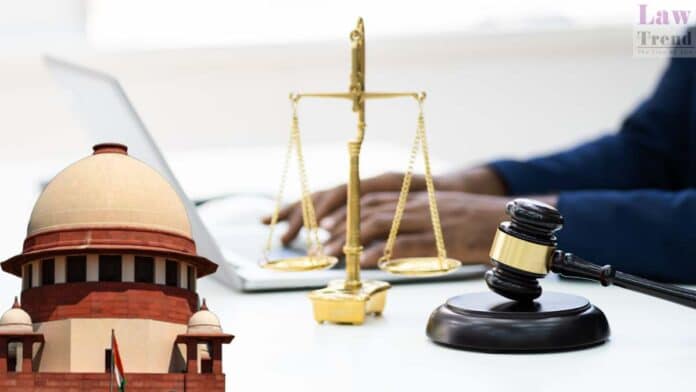The Supreme Court urged a woman litigant appearing as a party-in-person to argue her case physically in court rather than through video conferencing (VC), cautioning her against misusing the virtual interface.
A bench comprising Justices Surya Kant, Dipankar Datta, and Ujjal Bhuyan was hearing a miscellaneous application filed by the petitioner, who had alleged contempt of the Supreme Court’s 2013 judgment in Lalita Kumari v. Govt. of U.P.. She also sought the recall of a November 20, 2023 order and restoration of her appeal, claiming she was not granted a hearing.
During the hearing, the Court repeatedly asked why the petitioner could not appear physically despite being offered legal aid and travel expenses. In response, the petitioner cited family obligations, the distance from Delhi, and occupational responsibilities. She added that previous audio issues in the VC hearings had now been resolved.
However, Justice Datta raised concern over her conduct during the virtual hearing. “You kept looking at someone every time we asked you something,” he observed. When asked who she was looking at, the petitioner initially said she was referring to co-petitioners, but later admitted she was the sole petitioner in the case. The contradiction prompted the bench to caution her against misleading the Court.
“You want to take advantage of the virtual interface and keep somebody behind you, who is not visible to us. We’d like to hear you in person,” Justice Datta remarked.
The bench even went as far as offering the petitioner the option to name a Supreme Court advocate of her choice to assist her free of cost. Additionally, it promised that all travel expenses would be borne by the National Legal Services Authority (NALSA), and she would be allotted a full day for arguments. But the petitioner remained adamant, asking, “What is the problem with my arguing? I want to understand that. I want to understand what’s the problem in my VC appearance.”
“We are at a loss to understand what prevents you from coming here!” Justice Datta replied, adding, “If you want your submissions to be heard, it has to be in-person.”
The Court also referred to two previous judgments, both from two-judge benches, which held that contempt petitions cannot be filed by someone who was not a party to the Lalita Kumari case. The bench invited the petitioner to argue why those rulings might need reconsideration.
“Maybe we can permit you to argue that those two judgments require reconsideration,” Justice Kant noted.
Before adjourning, the Court asked the petitioner to make up her mind on whether she would argue the case in person and contest the correctness of the cited decisions. “I have made up my mind,” she replied, without clarifying her stance further.
The matter now awaits the petitioner’s decision to appear physically, as the Court made it clear that any further hearing would require her presence in person.




